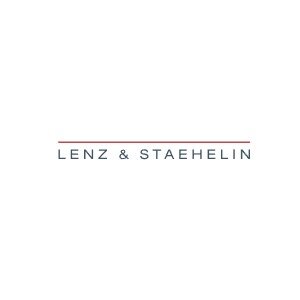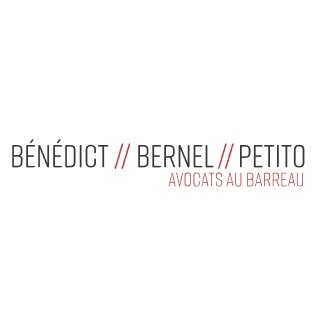Best Conveyancing Lawyers in Lausanne
Share your needs with us, get contacted by law firms.
Free. Takes 2 min.
Free Guide to Hiring a Real Estate Lawyer
List of the best lawyers in Lausanne, Switzerland
About Conveyancing Law in Lausanne, Switzerland
Conveyancing is the legal process of transferring the ownership of real estate from one party to another. In Lausanne, Switzerland, this process involves several key steps and must adhere to both Swiss federal and Canton of Vaud (where Lausanne is located) regulations. Conveyancing ensures that all legal, financial, and administrative aspects of the property transaction are handled correctly. The process covers drafting and registering the property sale contract, investigating property titles, checking for existing debts or liens, and officially transferring ownership with the Land Registry. Professional involvement is highly recommended, given the complexity of Swiss law and the significant financial stakes involved in property transactions.
Why You May Need a Lawyer
There are numerous scenarios where seeking the assistance of a qualified lawyer in Lausanne is crucial for conveyancing matters. Key situations include:
- Purchasing a residential or commercial property
- Selling property or land holdings
- Navigating mortgage arrangements or refinancing real estate
- Dealing with inheritance of property
- Managing potential disputes over property boundaries or ownership
- Resolving issues related to shared ownership or co-ownership situations
- Ensuring compliance with foreign ownership regulations
A lawyer provides clarity and protection by scrutinizing contracts, identifying potential risks, advising on legal obligations, and ensuring all aspects of the transaction comply with Swiss and local laws. Given the binding nature of Swiss property contracts and the strict administrative requirements, professional legal guidance is invaluable throughout the conveyancing process.
Local Laws Overview
Conveyancing in Lausanne is governed by a blend of Swiss federal law, the Civil Code, and specific regulations set forth by the Canton of Vaud. Here are some key legal points to be aware of:
- Property sales must be formalized through notarized contracts signed before a public notary licensed in Vaud.
- All property ownership changes must be registered with the Land Registry (Registre Foncier).
- Foreign nationals are subject to the Lex Koller law, which regulates acquisitions of real estate by persons residing abroad.
- Co-ownership and condominium (PPE - propriété par étage) arrangements are strictly regulated to outline rights and responsibilities of each party.
- Swiss law generally imposes a capital gains tax on property sales, with specific rules for main residences and investment properties.
- Inheritance of property, including conveyancing involved in probate matters, follows both Swiss and Vaud laws regarding succession, family rights, and inheritance taxes.
- Mortgage registration and any related encumbrances must be accurately recorded, and outstanding debts against a property are disclosed during due diligence.
Familiarity with these local legal frameworks is essential to avoid costly mistakes and ensure a legally secure transaction.
Frequently Asked Questions
What is the main role of a notary in conveyancing in Lausanne?
A notary is a public official responsible for drafting the property sale contract, ensuring its legality, and registering ownership changes with the Land Registry. The notary acts as an impartial intermediary, but is mandatory for most real estate transactions in Vaud.
Are there any restrictions for foreigners buying property in Lausanne?
Yes, the Lex Koller legislation limits the circumstances in which foreigners can purchase property in Switzerland. Generally, non-residents face restrictions, especially for secondary residences and investment properties, but exceptions exist for EU/EFTA citizens with Swiss residency.
How long does the conveyancing process typically take in Lausanne?
The process typically lasts between one to three months, depending on the complexity, availability of documentation, and promptness in securing necessary approvals and funds.
What taxes and fees should I expect when buying a property?
Buyers must budget for property transfer taxes, notary fees, registration fees, and potentially real estate agent commissions. Transfer tax rates in Vaud are typically three to five percent of the property value.
What documents are required for a property sale?
Essential documents include the property's title deed, current Land Registry excerpt, identity documents, proof of funds for the buyer, any mortgage information, and copies of prior notarial acts if available.
Is it possible to complete a property transaction without visiting Switzerland?
Yes, with proper powers of attorney and legal representation, some formalities can be completed remotely. However, some parties may be required to appear in person for certain notarizations or signatures.
Can I withdraw from a property purchase after signing the contract?
Property sale contracts in Switzerland are binding once signed and notarized. Withdrawal is only possible under specific conditions stated in the contract, and may involve penalties.
What due diligence should I carry out before buying real estate?
Due diligence should include a thorough review of the property title, investigation for any encumbrances or loans, reviewing building permits and use restrictions, and assessing any potential disputes or zoning issues.
How are disputes between buyers and sellers typically resolved?
Disputes may be resolved through negotiation, mediation, or, if necessary, litigation in the civil courts. Lawyers can help facilitate fair settlements or represent clients in court as needed.
What happens if there are outstanding debts on the property?
Outstanding debts, mortgages, or liens are identified during the title investigation phase and must be resolved prior to the transfer of ownership. The sale may be blocked until all encumbrances are cleared or assumed by agreement.
Additional Resources
For those seeking further guidance or official information, the following resources are highly useful:
- The Land Registry of Vaud (Registre Foncier) for property records and registrations
- The Notary Association of the Canton of Vaud for locating qualified notaries
- Canton of Vaud Tax Administration for property-related taxes and fees
- Vaudois Bar Association for finding specialized conveyancing lawyers
- Municipal offices (Commune) for local zoning, building permits, and planning information
Next Steps
If you require legal assistance with conveyancing in Lausanne, Switzerland, it is advisable to consult a qualified lawyer or notary specializing in real estate law. Begin by gathering all relevant documentation and clarifying your goals for the transaction. Contact a legal professional to arrange an initial consultation, where they will review your situation and explain your rights and obligations. It is critical to involve your lawyer from the earliest stages, especially before signing any preliminary agreements, to ensure that your interests are protected and the process goes smoothly. Careful planning and expert guidance can help you navigate the complexities of conveyancing law in Lausanne, minimizing risks and ensuring a successful property transaction.
Lawzana helps you find the best lawyers and law firms in Lausanne through a curated and pre-screened list of qualified legal professionals. Our platform offers rankings and detailed profiles of attorneys and law firms, allowing you to compare based on practice areas, including Conveyancing, experience, and client feedback.
Each profile includes a description of the firm's areas of practice, client reviews, team members and partners, year of establishment, spoken languages, office locations, contact information, social media presence, and any published articles or resources. Most firms on our platform speak English and are experienced in both local and international legal matters.
Get a quote from top-rated law firms in Lausanne, Switzerland — quickly, securely, and without unnecessary hassle.
Disclaimer:
The information provided on this page is for general informational purposes only and does not constitute legal advice. While we strive to ensure the accuracy and relevance of the content, legal information may change over time, and interpretations of the law can vary. You should always consult with a qualified legal professional for advice specific to your situation.
We disclaim all liability for actions taken or not taken based on the content of this page. If you believe any information is incorrect or outdated, please contact us, and we will review and update it where appropriate.









